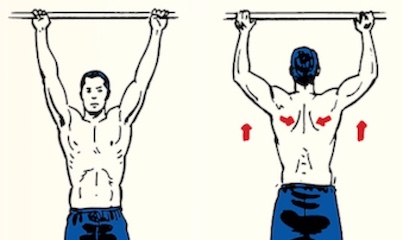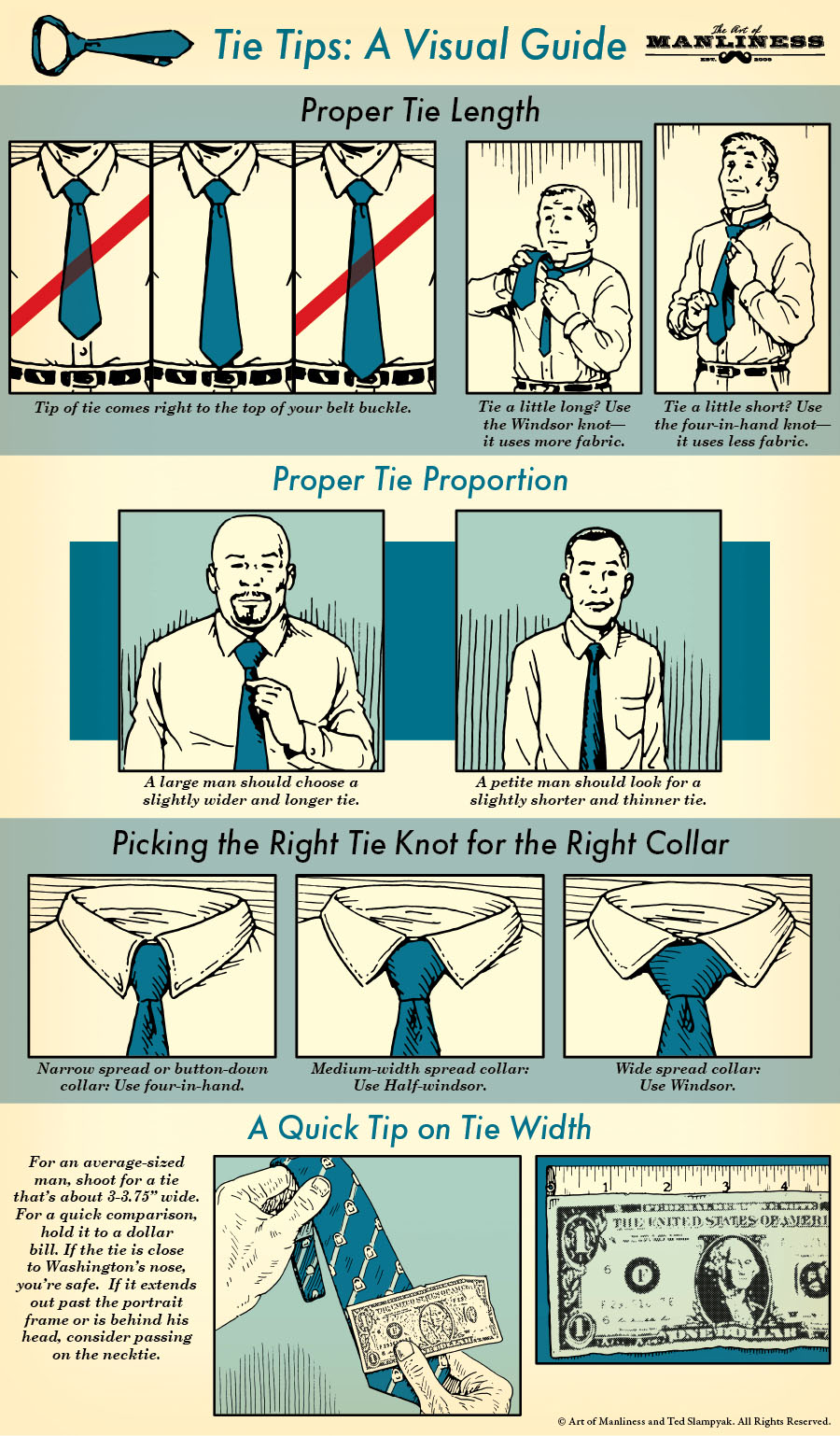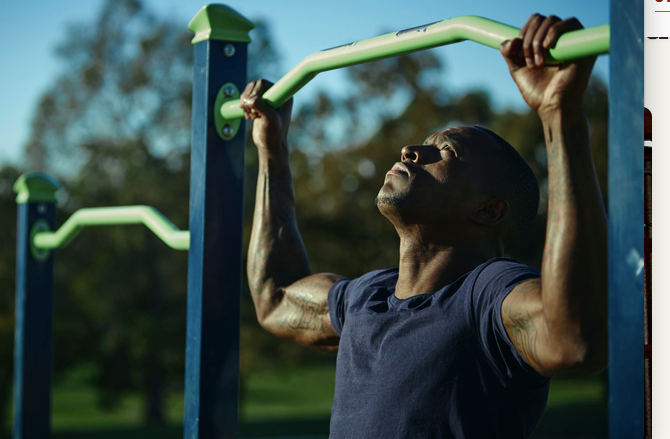
The all-nighter. It’s kind of a rite of passage for college students, especially during finals. But even older adults sometimes need to pull one — finishing up a work project or driving through the night. Even I’ve pulled a good number of all-nighters these last six years, writing up a blog post for the next day. Given the fact that I’m my own boss and don’t technically have any set “deadlines,” I don’t know if this makes me crazy, or dedicated, or maybe crazy dedicated. Probably just crazy.
Pulling an all-nighter isn’t the most healthy or desirable thing in the world (although it can actually produce feelings of euphoria), and doing so should be avoided whenever possible. But even the most organized student sometimes comes face-to-face with the fact that their paper is going to require more hours to complete than there are hours left in the day.
To get a unique perspective on the ins and outs of pulling a successful all-nighter, we asked a group of former Soldiers, Marines, and Special Forces veterans to share the methods that got them through combat and a host of night-ops. These men – who are all currently on staff at the BluCore Shooting Center in Denver, CO — served in the Navy SEALS, Green Berets, and the Army and Marine Infantries. (They’ve asked that we only use their first names for purposes of anonymity). For these vets, staying awake through the night was a matter of life and death, but their tips apply equally well to the civilian who needs to plow through a work or school project. In addition to their advice, we’ve provided tips from sleep experts and researchers.
All-Nighters: Avoid Them Whenever Possible
The first tip in pulling an all-nighter is actually to avoid doing it whenever you can! Depriving yourself of sleep has all sorts of deleterious effects on your body and mind, including:
- Decreases concentration. Sleep deprivation slows down the area of the brain responsible for concentration. Not good for focused study sessions.
- Hurts working and long-term memory. Your working memory is called upon for complex tasks where you have to pay attention to one thing while holding a bunch of other things at the forefront of your mind. Not only does sleep-deprivation impair this mental “scratchpad,” it diminishes your long-term memory as well. It’s during sleep that our recent memories are transferred to the neocortex to be solidified and stored. So all those facts you memorized through the night might not even be there come test time in the morning.
- Weakens immune system. While pulling an all-nighter may help you get that term paper done, you do so at the risk of getting sick right before your American History final later in the week.
- Cortisol increases. Pulling an all-nighter will probably make you feel stressed and on edge. That’s because your body’s level of cortisol (a hormone released in reaction to stress) increases whenever you’re sleep deprived. Elevated stress levels are no bueno for Spanish exams.
- Testosterone decreases. As we discussed in our series on increasing testosterone, our bodies make nearly all the testosterone they need for the day while we’re sleeping. Add the increased cortisol levels (another testosterone killer) and you’ve got a recipe for feeling like less of a man. Keep in mind, testosterone isn’t just for building huge muscles. Men with optimal levels of T have sharper minds and are more confident than their low-T brethren, two things that come in handy for all sorts of tasks.
Due to these mind-melting effects, my suggestion for students is to not pull an all-nighter when you can avoid it, and when you can’t, try to reserve it for writing papers. If you’re cramming for an exam, you’re probably better off putting in several hours of intense study, and then getting some shut-eye — maybe you won’t cover as much material, but you’ll have a better chance of remembering what you did study. With a paper, sleep deprivation will still cause your writing to suffer, but there’s no getting around the fact that finishing it will require a certain number of hours — your paper won’t magically finish itself if you leave it half-done to hit the sack.
How to Pull an All-Nighter When You Must
Alright, so pulling an all-nighter isn’t an effective or sustainable study or work strategy. But sometimes our best-laid plans go awry and an all-nighter becomes necessary. When it does, here’s how to stay awake for the duration and get the most out of your round-the-clock push.
Get Some Sleep in the Tank
“Make sure you don’t get behind on sleep. When you know an all-nighter is coming, see if you can bank a few extra hours in advance. That makes the well deeper when you have to dip into sleep reserves. This really works.” –Eric, former Navy SEAL
If you know in advance you’ll be pulling all-nighter, try to go to bed earlier and/or wake up later in the days leading up to it.
If you didn’t see your all-nighter coming, you can still fill up your sleep tank with what researchers call the “prophylactic nap.” Taking a nap of any kind boosts your memory, creativity, mood, alertness, and cognitive performance, and preventive naps have been found to be more effective at staving off the negative effects of sleep deprivation than multiple doses of caffeine.
When it comes to naps, longer is usually better, but in the short-term, a 180-minute nap (which gives you two cycles that include all the valuable stages of sleep) has been found to be no more effective in increasing cognitive performance than a 90-minute nap (just one full cycle). According to nap expert Dr. Sara C. Mednick, an hour and a half is the preventive nap sweet spot because “it will take you through a full cycle of sleep and bring you out in REM or Stage 2 Sleep, allowing you to avoid sleep inertia” (the grogginess you experience when waking up from a deep slumber). Mednick recommends taking your nap between 1-3 pm or 1-3 am, as these are “’perfect nap’ zones, where nap cycles will be ideally balanced between REM and SWS” (Slow Wave Sleep).
Keep in mind that the effects of a prophylactic nap have an expiration date — they only last 8-10 hours.
For more on what these sleep terms mean, the amazing benefits of napping, and how to optimize your naps for different situations, check out this post.
The All-Nighter Classic: Caffeine
“Caffeine works best when you are not already abusing it. If you drink only a couple cups a day you don’t need to worry. If you drink a LOT of coffee throughout the day, don’t expect the coffee at night to work quite as well.” -Eric
All of the SPEC-OPS guys we talked to unsurprisingly recommended consuming some sort of caffeine throughout the night. The trick, according to all of them, is to lay off the caffeine the day before and the day leading up to your all-nighter. Your body and mind build up a tolerance to caffeine, so if you’ve been ceaselessly pounding back the coffee all week long, it won’t have as strong of an effect during your round-the-clock vigil.
Eric also recommended mixing some sort of fat into your coffee, like grass-fed butter (which contains more healthy Omega-3 fatty acids than the grain-fed variety) or coconut oil. He says it “helps prolong the caffeine buzz.” When you add some sort of fat to your coffee, you’re adding in medium-chain triglycerides, or MCT. MCT may provide an extra shot of lasting energy. This coffee + butter concoction can also satisfy your hunger for a few hours without having to eat anything else.
Besides coffee, there are of course a wide variety of energy shots and drinks available. Whichever you choose, go sugar-free to avoid a crash. Hunter, a former Marine infantryman, recommended Rip Its — “a sort of energy drink that was ALL over, over there!”
I’ve used Military Energy Gum (formerly Stay Alert Gum) with success. Designed by Wrigley for the U.S. military, each piece of gum contains 100 mg of caffeine (for comparison, a 12 oz Starbucks coffee is about 260 mg), and through oral absorption it gets into your system faster than pills or liquids. It starts working right away and keeps you going through the long night.
No matter what caffeine-delivery system you choose, employ it discriminately. Instead of ingesting one big dose less often, which will lead to energy crashes, take smaller doses more frequently. Shoot for about 100-150 milligrams every 2-3 hours.
Not Surgeon General Approved: Nicotine
“Is it healthy? No. But neither is pulling an all-nighter. Nicotine has been used by Soldiers, Sailors, Airmen, and Marines for DECADES. It keeps you busy and keeps you awake, to a degree. But, as with coffee, if you are used to dipping a can a day, then that late night dip won’t have much of an effect on you. If you are only an occasional ‘dipper’ and have a dip or two during the night to finish a project by a deadline, it can really help.” –Jeff, former Green Beret
The dip tip came up a lot from the Spec-Ops guys we talked to and I’m passing it along simply because it’s interesting. If you’re staying awake to potentially dodge a bullet, than nicotine might be the lesser of two evils. But if the only danger you’re facing is getting a C in Calculus, then I’d personally avoid the dip and cigarettes. Sleep experts and doctors would agree.
Eat Light and Lay Off the Carbs
“A large, carb-heavy meal leads to a crash. Sometimes, even eating at all leads to a crash. You need to fuel for combat operations, so missing meals isn’t a great option. But, pulling an all-nighter to finish a project at work or to drive through the night really doesn’t require any ‘fuel.’” -Eric
Sleep experts concur with this advice. When staying up all night, avoid carbs and focus on eating protein and fats (nuts, beef jerky, etc.). Keeps you full and provides sustained energy without the crash.
Get Moving
“Work out, walking or even working while standing. There is a proven physiological response that follows a workout. Just don’t work out too hard right before your all-nighter as this could make you tired.” –Jeff
“If I was on some type of outdoor guard duty — TCP, gate guard, fire guard, or motor pool guard — I would walk around. If I couldn’t walk around I did push-ups, sit-ups, squats or some other quick exercise. The ability to keep the blood flowing was the easiest way to stay awake for long periods of time.” –Rob, former Army Infantry
I’ve found physical activity to be one of the most effective ways of getting through an all-nighter. I typically try to take breaks every 30 minutes to get up and walk. And I alternate sitting with using a standing desk.
Make Yourself Uncomfortable
Jeff recommends pinching your thigh: “A little bit of stimulation to the pain receptors!” Matt, a former Air Force mechanic and Army infantryman, prefers to pinch his eyebrow.
Besides pinching, another way you can give yourself a dose of discomfort is to use cold water. When you’re feeling drowsy, go to the bathroom and splash some on your face. If you really need a pick-me-up, you can even take a cold shower. Try turning down the thermostat too – keeping your car or study area chilly will help you stay alert.
Misery Loves Company
“It can also be very helpful to have some company. In the military, you could find yourself in a situation that required you to be ‘on-watch’ while others were sleeping. Often, this would happen after a strenuous day’s work. If you did the watch alone, it could get boring. This could lead to sleep if you were not careful. Sometimes staying awake with someone else really helps.” -Eric
Having someone else around to occasionally chat and joke with can do wonders in waking up your brain. They can also keep you accountable about not dozing off.
Over-the-Counter “Speed”
“We were once given some form of legal/militarized ‘speed’ but it was only used in testing. They gave it to us on base (while in Iraq I believe) and then monitored our vitals throughout the evening. We never were actually issued it for an op. I know the Air Force has been giving this to pilots on long flights for a long time (or used to). The funniest part about being on the ‘legal speed’ — EVERYONE had a PR (personal record) of one form or another while working out that night!” -Eric
File this one was under the “really interesting if not (yet) practical for the civilian” category.
The drug Eric is referring to was most likely something called Modafinil (also known as Provigil). Militaries around the world have been experimenting with it as a way to extend soldiers’ ability to function without sleep. Modafinil was originally developed to treat narcolepsy, but researchers have found that it allows normal folks to go without sleep and not suffer any of the detrimental effects. In fact, many Modafinil users feel it gives them an almost superhuman focus. And unlike other stimulants like caffeine, nicotine, or amphetamines, Modafinil is less addictive, doesn’t interrupt normal sleeping patterns, and doesn’t cause jitters or post-use crashes. For the reasons above, the U.S. Air Force has been giving Modafinil to their flight crews on overnight missions.
There’s a small but growing group of high-achieving civilians (Wall Street bankers, entrepreneurs, athletes) who are turning to Modafinil to give themselves a mental edge and to help them power through their busy schedules.
Modafinil is available by prescription only, so if you wanted to try it, you’d have to talk to your doctor. But because it’s primarily used to treat narcolepsy or to help those who work irregular hours, he or she will probably be leery about writing you a script just so you can sarge through a night of studying.
While the research doesn’t show any short-term detrimental side effects from using the drug, there’s very little research on its effects long-term. Scientists also aren’t exactly sure how Modafinil works. They just know that it does. For those reasons, researchers don’t recommend Modafinil for off-prescription use. But if you’re like me, and find the subject of cognitive enhancing drugs — so-called nootropics — quite fascinating, you’ll want to keep a close eye on the coming research.
Recovering from an All-Nighter and Paying Back Your Sleep Debt
When you accumulate a sleep debt – the deficit created when you sleep fewer hours than your body needs – you get hit with the myriad of negative effects mentioned above. Fortunately, paying back your sleep debt can erase these harmful consequences.
Staying Alert the Day After
Eric said that he and his fellow Navy SEALs would have periods where they’d work every night, and then sleep during the day; he admires the infantrymen “who didn’t have the luxury of sleeping all day like a lot of us SEALs did!”
You won’t always have the luxury of going right into recovery mode after you’ve been up all night either, as in times when you finish a final in the morning, but still have another one slotted for the afternoon. So let’s first talk about how to make it through the day after your all-nighter. In addition to continuing the tips mentioned above – consuming caffeine wisely, keeping moving, avoiding carbs – try these tactics as well:
- Nap strategically. Even a very short mid-day nap will take some of the edge off your sleep deprivation. But you have to do it strategically. When you’re tired, you’ll enter more quickly into deep, REM sleep once you nod off. If you awaken from this stage you’ll suffer from sleep inertia and feel even more tired than before. So limit your naps to just 20 minutes or less. Consider making it a “caffeine nap” too. You down a cup of coffee or other caffeinated beverage and then immediately hunker down for a 15-20 minute nap. The caffeine clears your body of adenosine, a chemical which makes you sleepy. It takes a while for the caffeine to circulate through your system, so it doesn’t affect the quality of the nap. Instead, it works in tandem with the refreshment you would feel upon awakening from a normal power nap – making it easier to get up and get going.
- Stay hydrated. Keeping your system flushed with water will make you feel much better.
- Stay under the lights. Work in the brightest light possible; dim light will make you drowsy. What’s even better is exposing yourself to blue light. Mark’s Daily Apple recently had a great post on how blue light has been proven to “improve our cognitive abilities, including memory, alertness, reaction time, and executive function.” Definitely benefits you’ll need after (or during) an all-nighter!
You’re going to feel your absolute worst about 24 hours after your usual wake-up time. But your body may naturally give you a second-wind around 10 am and again between 6-7 pm, so if you have anything particularly difficult to tackle that day, try to save it for those windows.
Avoid driving the day after an all-nighter; driving sleep deprived is just as bad as driving drunk. And just like being drunk, you usually don’t realize how truly impaired you are.
The Road to Recovery
Once you’re able to knock off for the day, it’s time to start recovering from your all-nighter and recouping your sleep debt so you can get back to being your sharp, healthy, energetic self as quickly as possible.
Fortunately, a one-to-one repayment is not necessary. That is, if you skipped your usual 8 hours of sleep, you don’t need to sleep 16 hours the next night in order to erase your sleep debt. When you’re sleep deprived, a reflex kicks in that allows you to sleep longer and more deeply in order to accelerate the recovery process.
There’s no strict calculator for how much extra sleep you’ll need to make up your deficit, so the best thing to do is to simply let your body tell you what it needs. Go to bed whenever you feel tired (but stay up until at least 9 pm so you don’t awake in the middle of the night), and then allow yourself to wake up naturally – don’t set your alarm clock. Keep this up until you’re back to feeling well-rested. College students often have the luxury of this approach, but if you have more of a regular schedule to keep, the best way to recover is to tack on an extra 1-2 hours of sleep each night until you feel bright-eyed and bushy-tailed again.
The most important thing is to return to a regular sleep schedule as soon as possible. One all-nighter won’t kill you, but chronic sleep deprivation can lead to serious health problems like obesity, heart disease, stroke, and diabetes.
Bottom line: use the all-nighter only when necessary and don’t make it a habit!
_______________
A big thank you to BluCore Shooting Center for rounding up these tips for us from their experienced, veteran staff. BluCore was founded by two Navy SEALs and features a shooting range and training courses. Check out their online store and if you’re in the Denver area, go pay them a visit!








